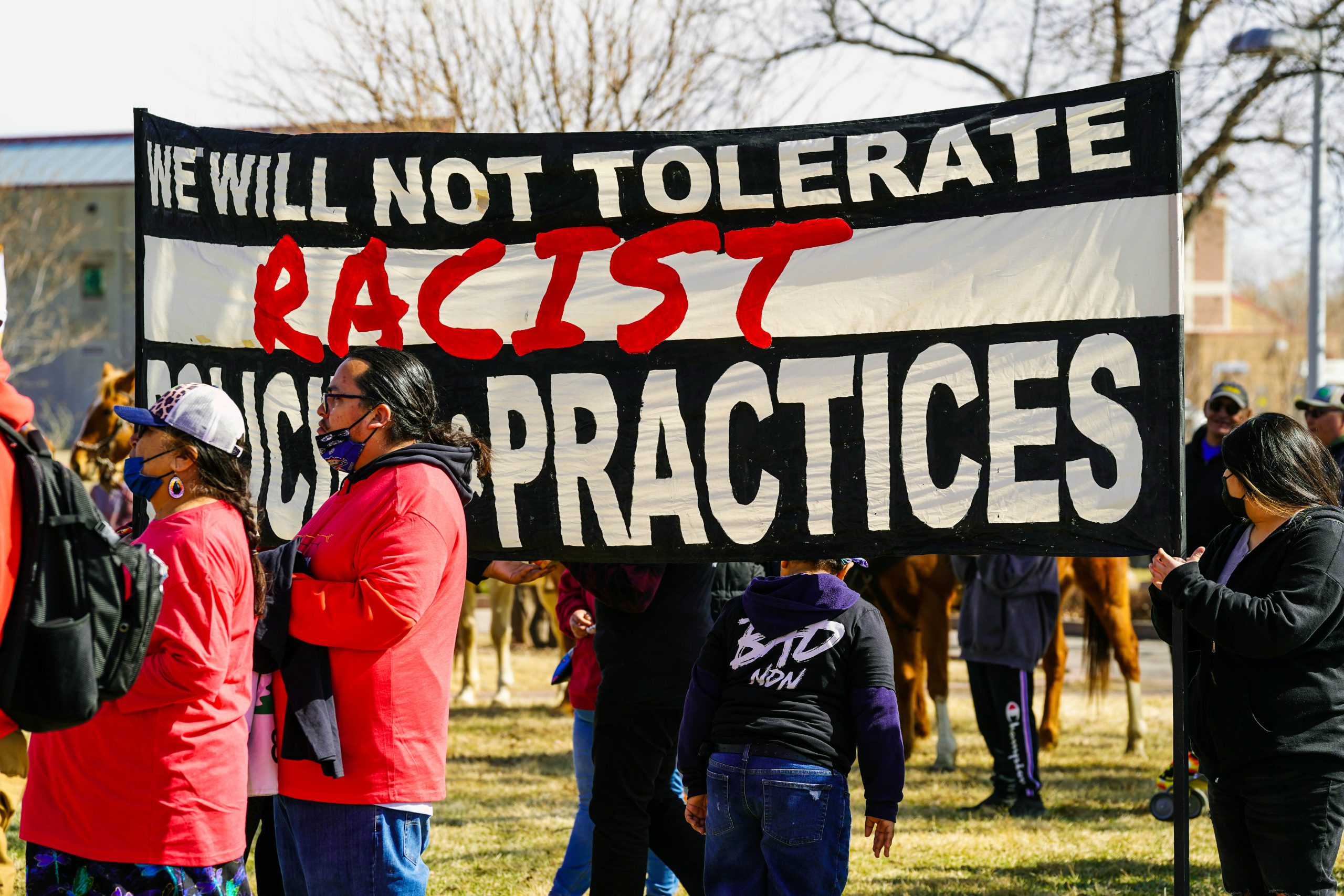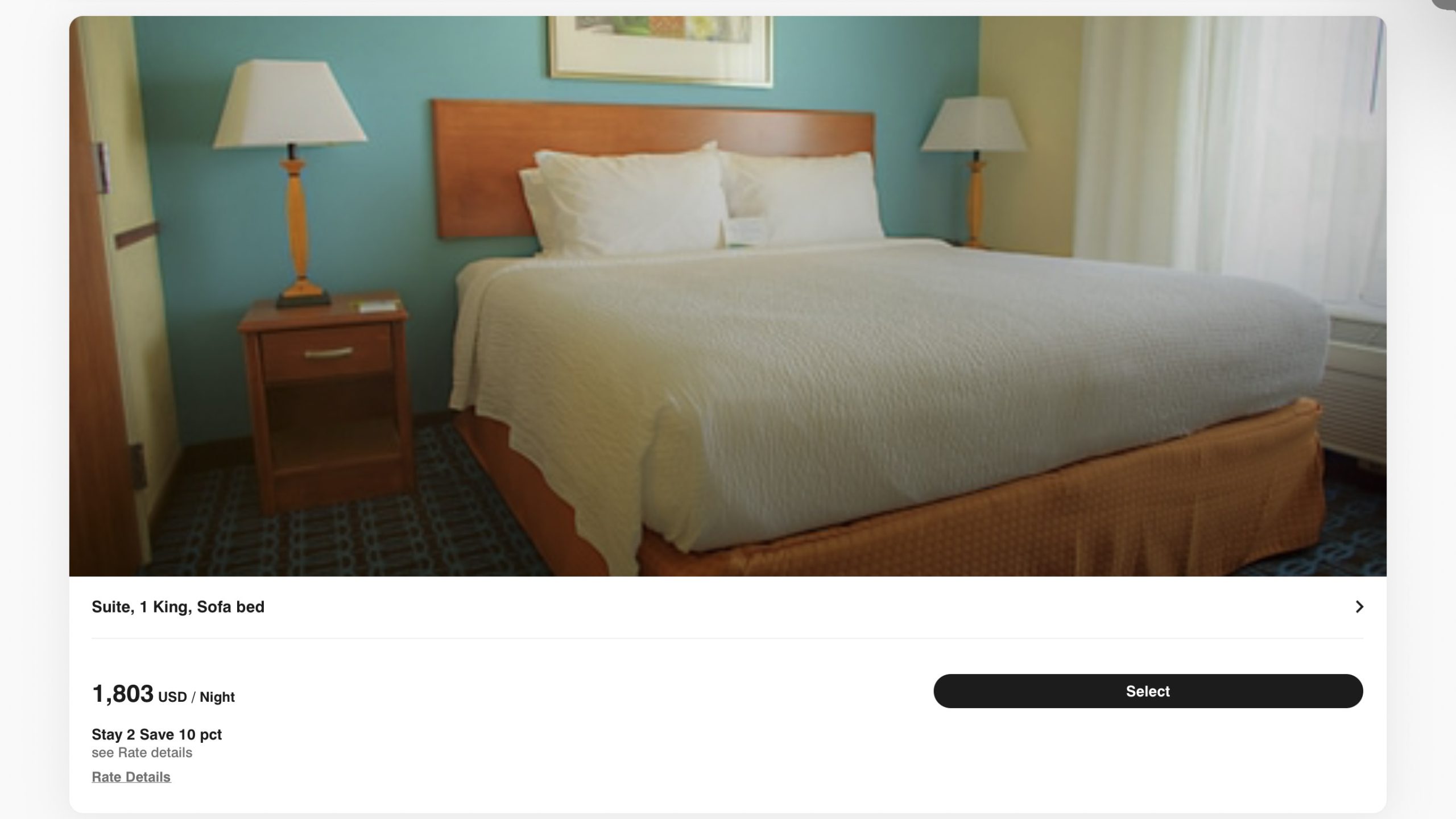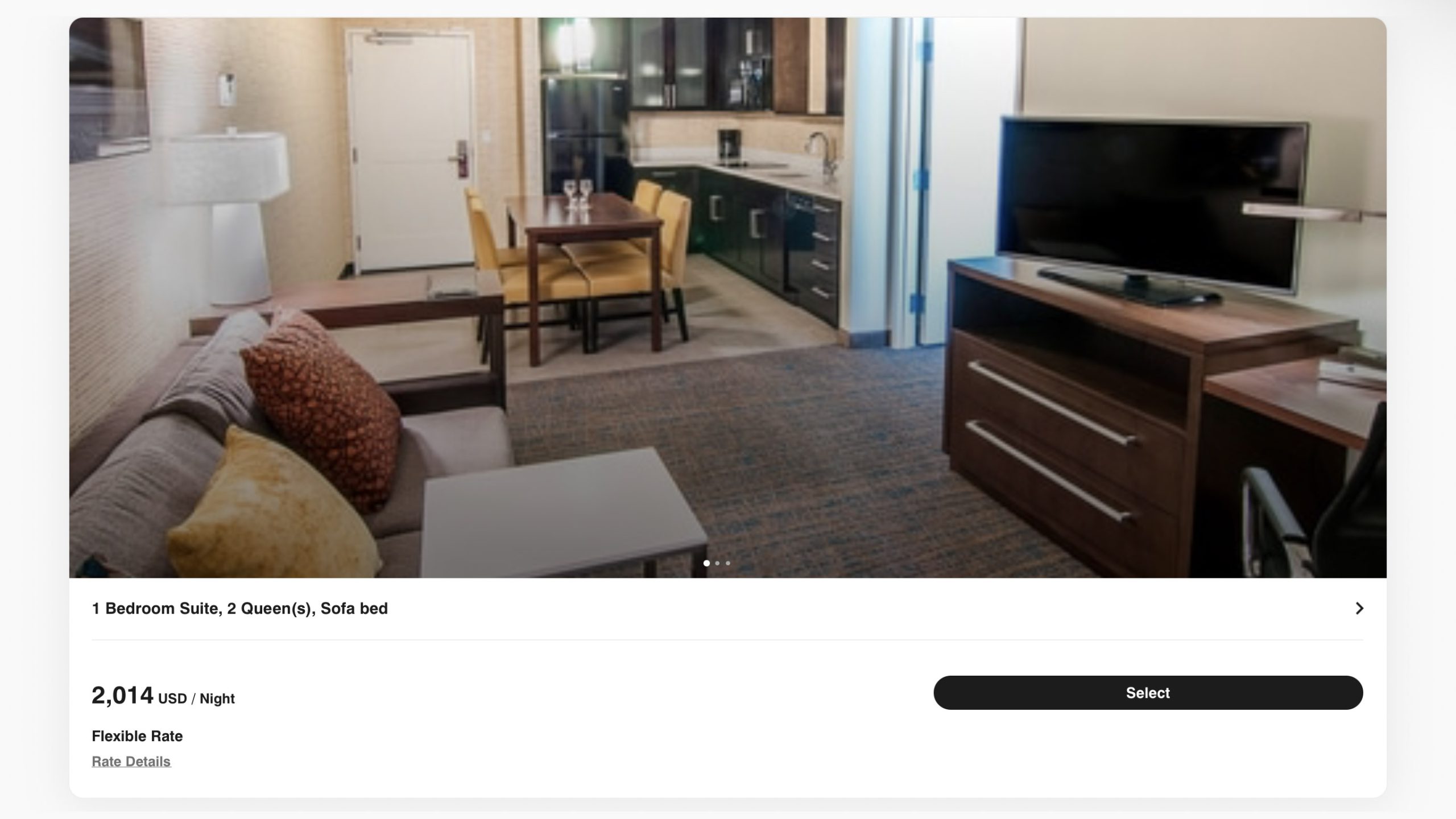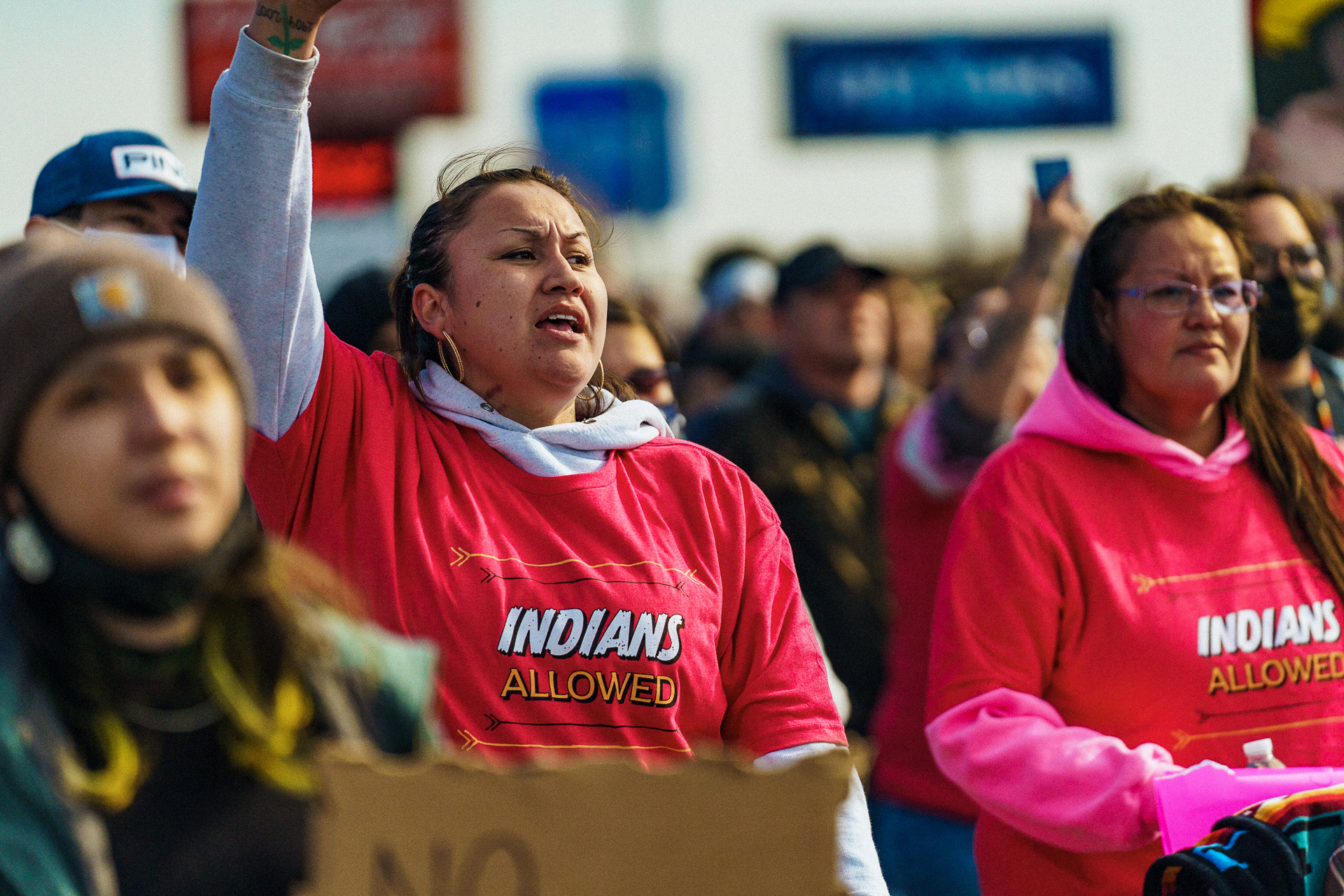Indianz.Com > News > ‘Maybe they don’t want our business’: Hotel rates explode during Native event

‘Maybe they don’t want our business’
Hotel rates explode during Native event
Tuesday, December 13, 2022
Indianz.Com
People headed to a Native basketball, educational and cultural tournament in South Dakota were shocked to learn that two hotels were charging more than $2,000 a night during the event.
The two hotels in Rapid City — Residence Inn and Fairfield Inn and Suites — are both owned by Marriott Hotels. On Tuesday morning, they both listed rates of $2,000 or more, with taxes and fees included.
A front desk clerk at Residence Inn who answered the phone Tuesday said the $2,353 rate (with taxes and fees included) wan’t a typo, and he said he was checking with his manager to verify the rate.
“That’s what’s showing on my end as well,” he said.
‘No one can afford that’: Hotel Rates in Rapid City


An organizer for the Lakota Nation Invitational, which began Tuesday and continues through Saturday, said he was surprised to learn that the two hotels were charging more than $2,000 a night during the event, which takes place December 13-17 at the local convention center. “No one can afford that,” said Bryan Brewer, executive director for the LNI tournament. “I don’t know why they would even do that. Maybe they don’t want our business.” He said he planned to contact local tourism officials to see if they could help to get the two hotels to adjust their rates. Brewer said hotels in Rapid City and in nearby towns typically raise their rates during the tournament, which provides a significant economic boost each year to the Rapid City hotel and food industry. But usually they don’t raise their rates much more than $250 a night. He said he has brought up the issue of hotels raising their rates during the tournament with city and local tourism officials in the past and has been told that often the corporate offices for those hotels are the entities that decide to raise rates during the tournament. “I just don’t understand it at all,” he said. Vi Waln, a Rosebud Lakota writer who lives on the Rosebud Reservation in South Dakota, was one of the first people Tuesday morning to alert others on social media to the extraordinarily high rates being charged by the Residence Inn. “They love money but hate Indigenous people,” Waln said.
Related Stories
Search
Filed Under
Tags
More Headlines
Cronkite News: Navajo psychiatrist addresses mental health needs
Chuck Hoskin: Tell the whole story about the theft of tribal lands
Native America Calling: A sample of Native Guitars Tour 2024
Cronkite News: Native organization carries on horse traditions
Native America Calling: How Native literature is changing the mainstream narrative
Native America Calling: No ordinary animal
Native America Calling: Safeguards on Artificial Intelligence
NAFOA: 5 Things You Need to Know this Week
Chuck Hoskin: Cherokee Nation takes the lead for our environment
Native America Calling: Earth Day assessment for Native peoples
Cronkite News: Gathering addresses ‘epidemic’ among Native people
VIDEO: Cody Desautel on tribes and federal forest management
AUDIO: Legislative Hearing on Discussion Draft of Forest Management Bill
Native America Calling: Remembering the 1974 Navajo border town murders
Native America Calling: Can the right approach close the Native immunization gap?
More Headlines
Chuck Hoskin: Tell the whole story about the theft of tribal lands
Native America Calling: A sample of Native Guitars Tour 2024
Cronkite News: Native organization carries on horse traditions
Native America Calling: How Native literature is changing the mainstream narrative
Native America Calling: No ordinary animal
Native America Calling: Safeguards on Artificial Intelligence
NAFOA: 5 Things You Need to Know this Week
Chuck Hoskin: Cherokee Nation takes the lead for our environment
Native America Calling: Earth Day assessment for Native peoples
Cronkite News: Gathering addresses ‘epidemic’ among Native people
VIDEO: Cody Desautel on tribes and federal forest management
AUDIO: Legislative Hearing on Discussion Draft of Forest Management Bill
Native America Calling: Remembering the 1974 Navajo border town murders
Native America Calling: Can the right approach close the Native immunization gap?
More Headlines
